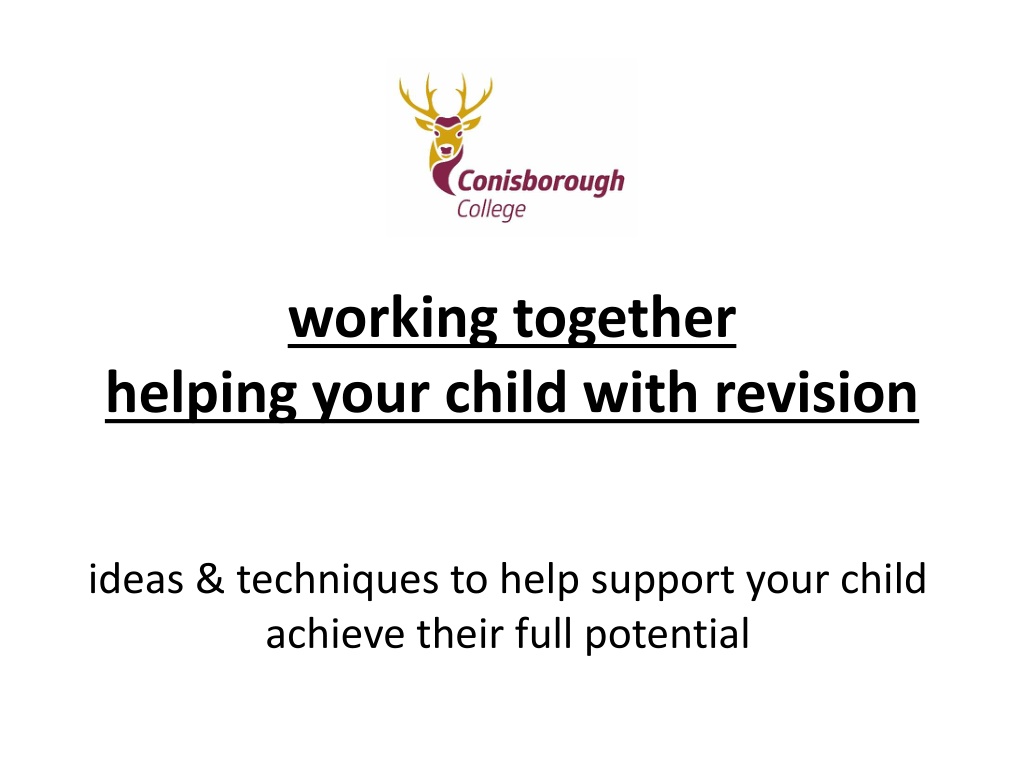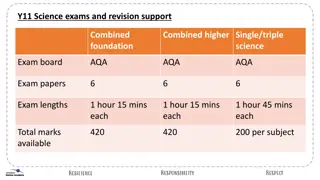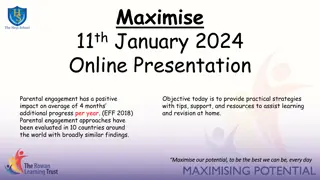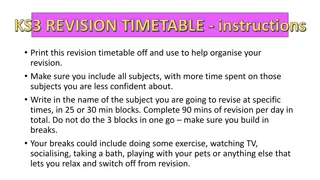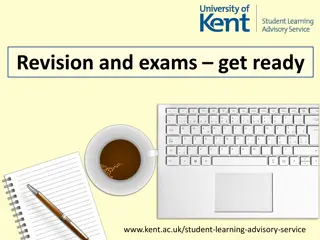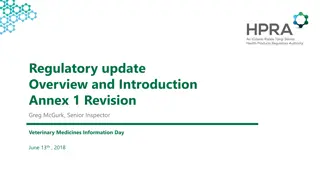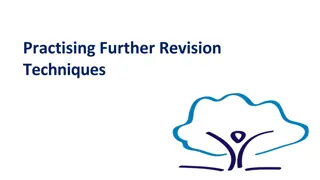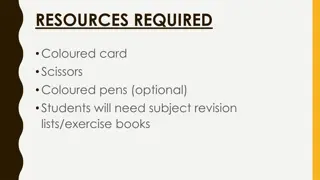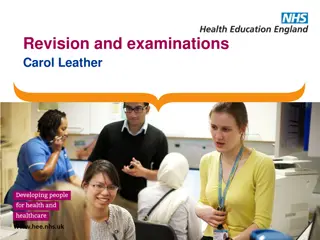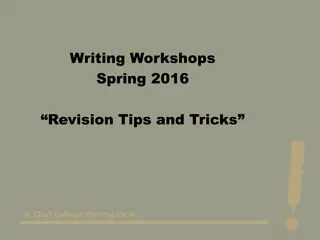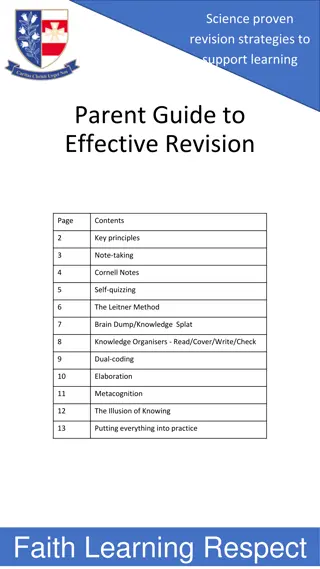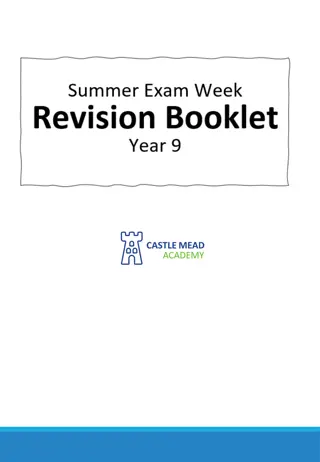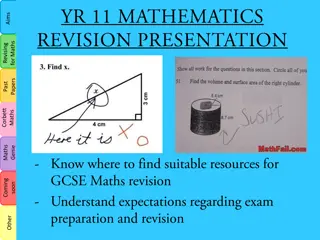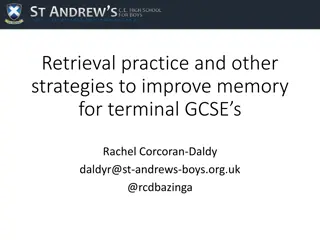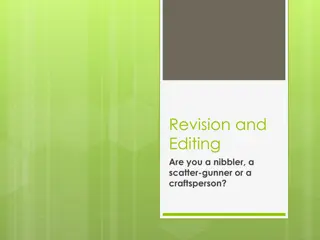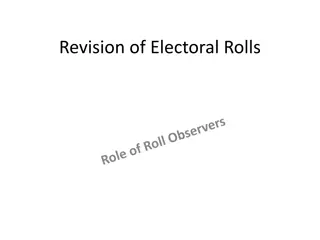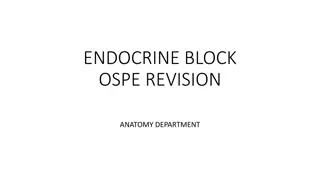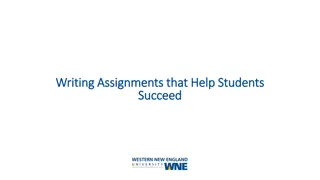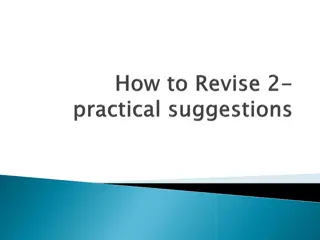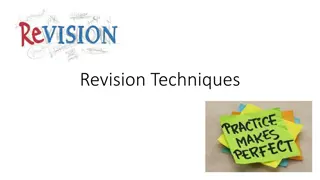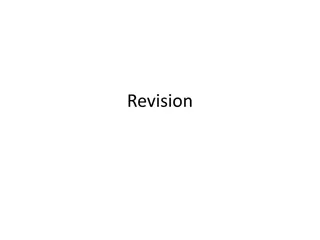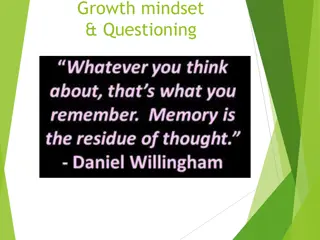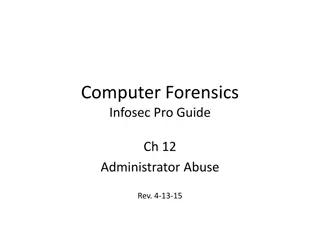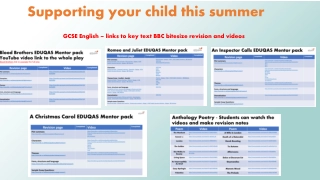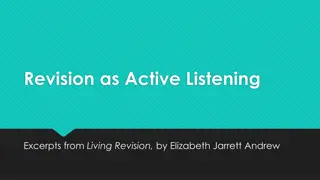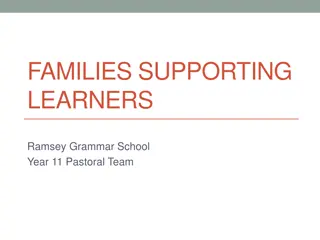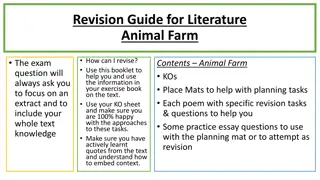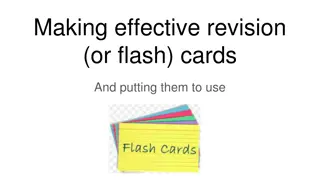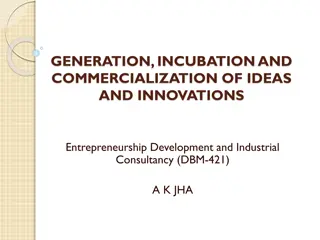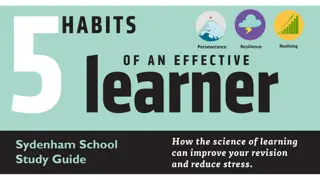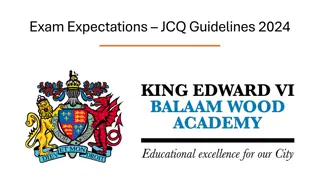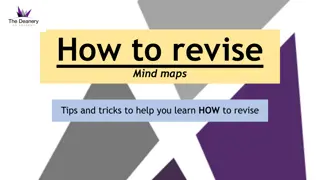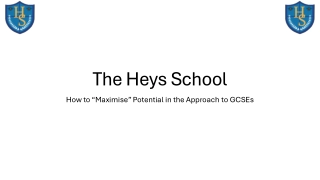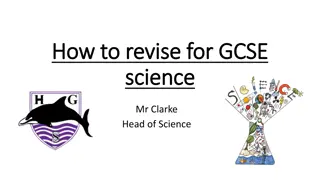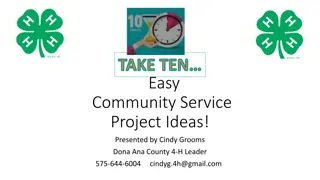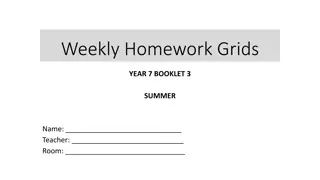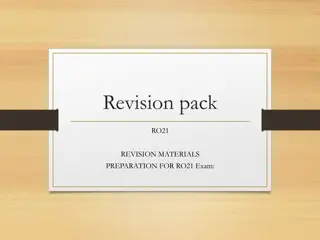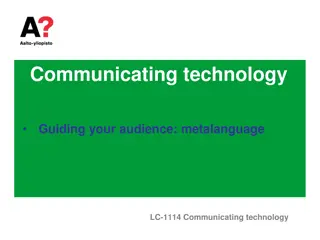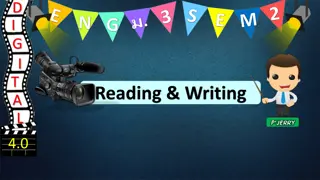Supporting Your Child's Revision: Ideas & Techniques for Success
Understanding the importance of revision and actively engaging in your child's learning process can significantly impact their academic success. Discover why revision is crucial, how to effectively help your child revise, and what strategies students should implement to achieve their full potential. Encouraging regular revision, addressing weaknesses, and creating a conducive study environment are key factors in aiding your child's exam preparation journey.
- Child revision support
- Effective study techniques
- Parent involvement
- Academic success
- Exam preparation
Download Presentation

Please find below an Image/Link to download the presentation.
The content on the website is provided AS IS for your information and personal use only. It may not be sold, licensed, or shared on other websites without obtaining consent from the author. Download presentation by click this link. If you encounter any issues during the download, it is possible that the publisher has removed the file from their server.
E N D
Presentation Transcript
working together helping your child with revision ideas & techniques to help support your child achieve their full potential
What is revision? It means going over previous work on a regular basis: to remind you of all the things you have forgotten to make links with other learning to see the bigger picture to reinforce learning to check understanding to remind you of what you don t already know
Why encourage your child to revise? It reduces panic It means that their exam results will show what they can do, not what they didn t do It helps identify problem areas It will improve their results
Why should I help my child revise? Research and experience shows that pupils whose parents show a regular and active engagement with their child s learning do better in exams You get to know your child s strengths and weakness Discussing their work with them strengthens their understanding Many students don t know how to revise effectively. Students love revision programmes, but too often don t do the work
What students should be doing Attending intervention sessions in school Getting advice from subject areas on how to revise Committing to around 200 hours of revision between now and their exams Constructing revision timetables Revising at home
What students should be doing Accepting that the next seven months are all about school work! Being active, not passive Equal focus on content and exam technique Getting the balance right between work and rest Speaking regularly with their teachers to find out what they need to do
What students should not be doing Nothing! Revising whilst also doing other things Simply reading notes and textbooks Spending lots of time making revision timetables Being unsupervised (unless you are sure they can do this) Focusing only on content also focus on technique
Where shall I start? Help your child understand how much time they have to revise Factor in rest & play time Help them understand the best time for them to revise Break down their revision into chunks
Your role Provide a suitable environment for study at home To help provide essential resources Removing the excuses Monitor both quantity and quality of revision Direct help asking questions, testing, helping learning Strike a balance between support and challenge Reward them Contact teachers for advice or information as needed Calm them down and focus them
Create a suitable work space A desk An upright chair A place to store and organise books Calm & quiet music Mobile phone switched off Bright and well circulated Comfortable temperature No disruptions social media, phone, TV etc. If possible not their bedroom
Resources Pens, pencil, scissors, paper, glue Post-it-notes Coloured pens Highlighters Dictionary Revision guides Food & drink (fruit, water not fizzy or energy drinks)
Essential Ingredients Sleep (7-8 hours a night) Positive thinking Praise & rewards Water Revision timetable Comfortable & tidy space Fresh air Exercise Relaxation Healthy & balanced diet
Breaks are important Pupils should take a 5-10 min break every 50 mins and a 20-30 min break every two hours Teenagers brains stop taking in information after 50 minutes The break should be short and include refreshments
Learning Styles Help your child to discover what learning style best suits them. Are they a Visual Learner Audio Learner Kinaesthetic Learner
Visual Visual learner respond well to: Colour Images Diagrams Charts Maps Mind maps Cue cards Highlighting key information
Audio Audio learners respond well to: Listening Talking/discussing Recording explanations and listening to them back Using different voices Mnemonics Making a song/rhyme
Kinaesthetic Kinaesthetic learners respond well to: Touching Doing Moving around Trying things out Physical repetition e.g. flash cards Walking and talking
Mind maps Association helps a lot of people to remember because it is much more powerful we use our imagination. The idea is to link objects and ideas to each other in the craziest way possible. Mindmaps (also called Spidergrams) are good for remembering topics and sub-topics such as, characters in a book.
Flash Cards Question and Answer Summaries Organising Revision
Mnemonics Mnemonics help you remember things by using smaller words that stand for something else. Rest Exercise Variety Imagination Structure Individual Ongoing Not too long
Chunking Breaking down larger pieces of information using bullet points or simple sentences. For example The average person can take in four numbers or words at a time, canconcentrate on revision for a maximum of 45 minutes at a time and remembers information best shortly before bedtime. Becomes Remember four words at a time Max 45 minutes
Questions to ask them When is your exam? What are you being tested on? What do you need to take on the day? What strategies are helping you the most? What can you tell me about what you ve just revised? What support do you need? Do you need some food or drink? Is it time for you to have a break?
Useful websites BBC revision site www.bbc.co.uk/schools/parents www.bbc.co.uk/bitesize Revision planning and support www.getrevising.co.uk www.support4learning.org.uk Exam board websites www.aqa.org.uk www.edexcel.com www. wjec.co.uk www.ocr.org.uk
Useful Contacts Head of Year 11 Mr Lewis slewis@cc.lewisham.sch.uk Head of Maths Mr Ellis wellis@cc.lewisham.sch.uk Head of English Ms Brickley kbrickley@cc.lewisham.sch.uk Head of Science Ms Robinson probinson@cc.lewisham.sch.uk Head of MFL Ms Davies cdavies@cc.lewisham.sch.uk Head of Humanities Ms Stevenson kstevenson@cc.lewisham.sch.uk
Final Advice for Parents Be positive Be patient Try and make the time you work together fun Turn off the TV Encourage a little and often approach Talk to them ask what they re doing, how they re finding it, if you can help Praise
